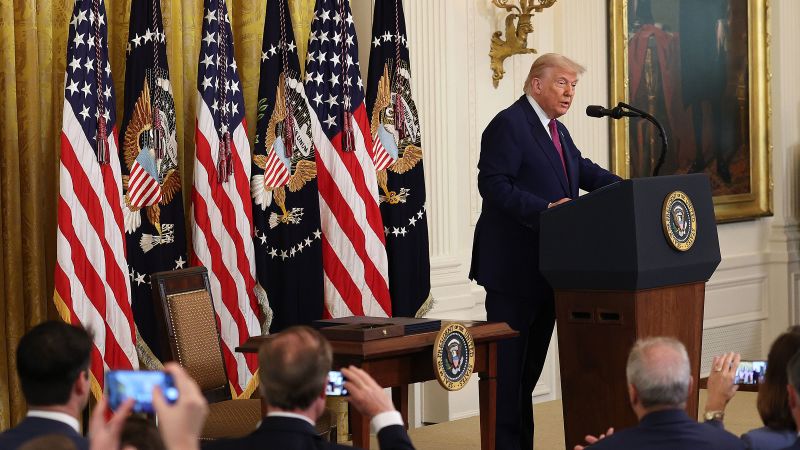The Middle East stands at a perilous crossroads, with escalating tensions between Israel and Iran threatening to ignite a broader regional conflict. Recent developments, including Iran’s breach of nuclear obligations and Israel’s readiness to act militarily, have drawn stark warnings from President Donald Trump, who cautioned that such a strike “could very well happen” but emphasized a preference for a peaceful resolution.
Background: A Fragile Balance of Power
Israel perceives Iran’s advancing nuclear program as an existential threat. The International Atomic Energy Agency (IAEA) recently reported that Iran has significantly breached nuclear nonproliferation obligations, including the operation of a secret third enrichment site and the accumulation of uranium enriched to near-weapons-grade levels . In response, Tehran announced plans to expand its nuclear activities, further heightening regional anxieties.
Trump’s Stark Warnings
President Trump has underscored the gravity of the situation, stating that while a strike is not imminent, “it could very well happen.” His administration has initiated evacuations of U.S. personnel from key Middle Eastern posts and is preparing for potential escalation . Trump has also expressed skepticism about the ongoing nuclear negotiations, suggesting that the likelihood of a successful deal has diminished.
Implications of Military Action
An Israeli strike on Iran’s nuclear facilities could trigger a massive regional conflict. Iran has vowed “more forceful and destructive” retaliation, including potential attacks on U.S. bases in the region . Such actions could necessitate military responses from the United States, especially given the recent withdrawal of some American personnel and diplomats aimed at ensuring their safety amidst the growing tensions.
Diplomatic Efforts and Their Challenges
Despite escalating rhetoric, there remains a push for diplomatic solutions. President Trump has emphasized his desire for negotiations with Iran, indicating that a military action on Israel’s part could compromise ongoing talks aimed at curbing Iran’s nuclear program. However, the effectiveness of these diplomatic efforts is increasingly uncertain, as both sides remain entrenched in their positions.
Israel’s Strategic Calculations
Israeli officials may be assessing their military options not only in response to Iran’s nuclear activities but also to reaffirm their regional dominance. The potential attack on Iran’s nuclear sites reflects a long-standing Israeli military doctrine that views Iran’s capabilities as an existential threat. Whether this is posturing or a genuine plan remains to be seen, but the implications of any military engagement are profound.
International Reactions and Concerns
The potential for Israeli military action has drawn concern from various international actors, primarily due to the potential for a wider conflict. Should violence erupt, it could jeopardize global oil markets and increase the risk of terrorism across the region and beyond. The U.S. and European nations must carefully balance their diplomatic strategies with the realities on the ground, recognizing that military solutions can often lead to unintended consequences.
The Road Ahead: Possible Scenarios
As tensions continue to rise, several scenarios could unfold:
- Diplomatic Breakthrough: Negotiations could yield a new nuclear agreement, leading to de-escalation.
- Limited Military Strike: Israel may conduct a targeted strike on Iran’s nuclear facilities, leading to limited regional conflict.
- Full-Scale Regional War: An Israeli strike could provoke a broader regional conflict, drawing in multiple actors and destabilizing the region.
- Prolonged Stalemate: Continued tensions without significant escalation, maintaining a fragile status quo.
The international community watches closely, hoping for a peaceful resolution but preparing for the possibility of conflict.

